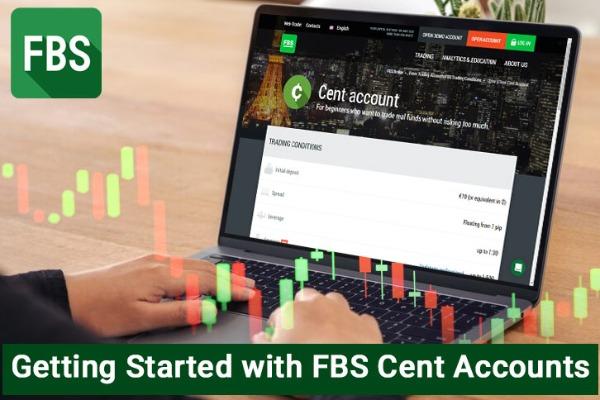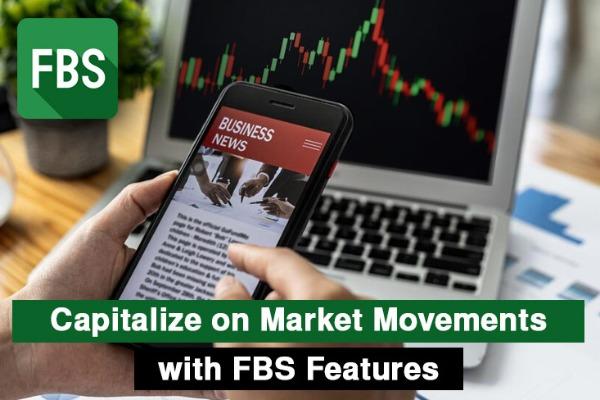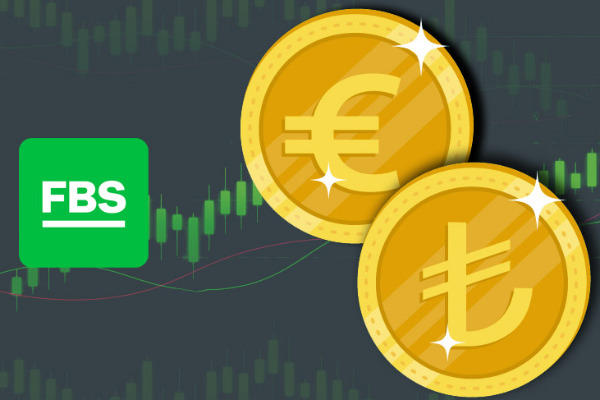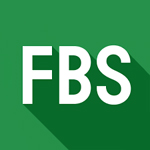FBS was first established in 2009 and currently serves millions of customers from 190 different countries. In the market, this broker has successfully won the heart of 13 million traders and is trusted by 370 thousand of partners from various countries.

FBS Holdings, Inc., also known as FBS Broker is an online forex & CFD broker based in Belize. The company was first established in 2009 and is a regulated broker operating under the strict supervision of Belize IFSC (International Financial Services Commission). They are also registered with an additional license from CySEC Cyprus, holding License Number 331/17.
According to their claim, the FBS broker consistently gets around 7,000 new traders and partner accounts every day. Thanks to this extraordinary growth in the number of clients, it is no wonder this broker continues to grow rapidly.
FBS consistently won international awards. For example, FBS currently owns several awards such as Best Broker in Asia-Pacific Region 2015, Most Transparent Broker in Asia 2018, Best Copy Trading Application Global 2018, Most Progressive Forex Broker Europe 2019, and many others.
For forex trading, FBS offers a leverage of up to 1:3000. As for spreads, FBS provides 2 options to suit various trading strategies of each trader: floating spreads (from 0.2 pips) and fixed spreads (from 3 pips).
Types of Accounts in FBS Broker
One of the main reasons people choose to trade in FBS broker is the minimum requirements to enter the market. FBS sets the minimum deposit required to open an account to as low as $1. There are two options available for small traders to open an account, which include the Cent accounts and the Micro accounts. The Cent account starts at a mere $1 deposit, while the Micro account starts a bit higher at a $5 initial deposit.
In addition to the really small amount for an initial deposit, both accounts offer you a reasonable amount of spreads. The Cent account offers a spread starting from 1 pip while the Micro account has fixed spreads starting from 3 pips. The maximum leverage offered is different for both accounts. The Cent account has a maximum leverage of 1:1000 while the Micro account has a maximum leverage of 1:3000.
The Cent account is certainly the most valuable proposition for new forex traders due to its reduced cost of trading. On the contrary, the Micro account which has a fixed spread of 3 pips is higher than the average Micro account's spread in the market today. Traders with a higher amount of deposit (let's say approximately $100) can take advantage of the Standard account, which has all the features of the Micro account with tighter spreads of 1 pip.
FBS Broker also offers an ECN account, which they present as a Zero Spread account. This means traders who open this type of account is allowed to enjoy trading with 0 pips in spreads, at the cost of a commission of $20 per lot. The minimum deposit required to open up an ECN account is $500, while the leverage is set at a maximum of 1:3000.
The last type of account in FBS Broker is called the Unlimited Account. This type of account is usually reserved for institutional and professional traders. The maximum leverage allowed is 1:500 along with floating spreads starting from as low as 0.2 pips. There is no commission and the initial deposit starts from $500. In our opinion, the Unlimited account is the best type of account to open in FBS Broker, due to its high speed of trade execution, lower cost of trading, favorable trading conditions, and comparatively lower leverage. In addition to these live accounts, FBS is also equipped with a demo account.
FBS utilizes the MT4 and MT5 trading platforms for accessing the FX markets on both desktop and mobile devices. The FBS trading platforms are connected to high-speed servers, and the mobile platforms are available as downloadable MT4 apps on the AppStore and Google Play. FBS traders can also use the MT4 Web Trader for easier access through an internet browser.
Now that we all have learned about FBS brokers, we have listed the pros and cons of FBS brokers to help you decide whether you need to start and open a trading account in FBS today.
Pros of FBS Broker
Commission-free trading is available
The more favorable trading cost is the low one. If one can be charged only with spread and no commission, then it is certainly better than having to be charged with both spread and commission. In this case, FBS offers a favorable condition where traders can just trade with low spreads.
ECN accounts are available
Just because FBS is a forex broker targeted for retail traders, doesn't mean it can't provide a professional trading condition like ECN specification. In fact, the broker has been offering an ECN account for a few years with no trading limits and a commission of $6. The spread is also ultra-competitive as it is offered from -1 pips.
Can trade on MetaTrader 4, MetaTrader 5, and FBS Trader
Platform trading variety is an important parameter that indicates a broker's commitment to providing the best trading tools to clients. For this matter, FBS is considered one of the leading forex brokers in offering optional platforms. The best part is that the FBS trading platforms are available on various types and devices.
FBS CopyTrade is available for traders and investors
Another advantage of FBS that traders should consider is the in-house CopyTrade application they provide. This application allows traders to copy trading strategies from professionals. Copy trading will be truly beneficial for busy traders who don't have much time to analyze market conditions.
Luxurious bonus and promotions
FBS offers a lot of luxurious bonuses and different promotions for traders, easily dwarfing bonuses and promotions offered by other brokers in the market. One of the most popular promotions in FBS Broker is the no-deposit bonus. Even when you have no money to invest, you can still start trading forex & CFDs in FBS Broker. It is directly available for clients to trade in their accounts.
The fast customer lives chat service
FBS broker puts great importance on customer service as a way to get new clients and maintain their loyalty. They also expand the service to reach a global audience by providing live support in various languages to complement their penetration into other countries markets.
Cons of FBS Broker
A limited number of tradable assets
FBS Broker does provide an extensive list of the 78 most favorable assets ranging from forex up to stocks and CFDs. Crypto is also available in FBS. In the most recent update, you can expect to find 28 forex pairs, including the major and minor pairs as well as 9 exotic pairs, 5 metal assets, 3 CFDs, and 33 US stocks in the platform for you to trade. Yet, if compared to other brokers in the same league as FBS, the asset offering is actually quite limited.
Countries and areas of trade
Due to legal restrictions from specific countries, FBS Broker is not allowed to have clients originating from the following countries: USA, UK, Japan, Israel, Canada, Brazil, Myanmar, Malaysia, and the Islamic Republic of Iran. The restriction might be a partial restriction such as having limited access to several features and products from FBS Broker, to a total restriction such as any access to the platform itself. If you need to find a trading broker in the specified countries, you might need to look elsewhere.
The licenses are offshore-based
Despite acquiring the CySEC license, which is a step up from IFSC Belize's license, FBS broker hasn't been registered to any onshore jurisdiction yet. Due to CySEC restrictions in leverage and bonus offers, the majority of FBS' offerings to its global clients are directed to the one under IFSC's jurisdiction.
No mention of segregated client funds in the Terms and Conditions
According to a review from FXEmpire, there have been no mentions of the segregated funds in the broker's T&C. It can be a warning sign especially if fund safety is your top priority. Now, FBS is an established broker that has been operating for more than 10 years, and its experience proves that there have been no major problems regarding clients' funds that lead to mass reporting that threatens the broker's existence. However, it doesn't hurt to have a segregated system to separate clients' funds from the broker's operational fund, to ensure that they manage their finance properly and doesn't use the client's funds to their benefit.

 Dedicated FREE FOREX VPS
Dedicated FREE FOREX VPS Free FOREX Virtual Private Server
Free FOREX Virtual Private Server MT4 Demo Contest, Get $500
MT4 Demo Contest, Get $500 Sign Up for an Account, Claim 60% Deposit Bonus
Sign Up for an Account, Claim 60% Deposit Bonus Free MT4/MT5 VPS 2024
Free MT4/MT5 VPS 2024 Send E-mail and Get Free Merchandise
Send E-mail and Get Free Merchandise $1K Refer a Friend Bonus for Pepperstone Pro clients
$1K Refer a Friend Bonus for Pepperstone Pro clients Maximize Your Earnings with 100% Deposit bonus
Maximize Your Earnings with 100% Deposit bonus Trade to Win, $5,000 Monthly Demo Contest
Trade to Win, $5,000 Monthly Demo Contest Claim 30% + 15% Deposit Bonus from LiteFinance
Claim 30% + 15% Deposit Bonus from LiteFinance








13 Comments
Erling
Jan 2 2023
Luca
Jan 2 2023
Erling
Jan 2 2023
Erling
Jan 2 2023
Erling
Jan 2 2023
Luca
Jan 2 2023
Fransesco
Jan 2 2023
Erling
Jan 2 2023
Galtier
May 4 2023
I've had some experience trading with a cent account on FBS, and let me tell you, it's an incredibly low-risk and low-deposit option. With just a dollar, you can trade as if you have a capital of $100,000. It's a fantastic way to learn trading without having to rely solely on demo accounts. The cent account is perfect for beginners and testers, and it's what sets FBS apart from other brokers.
That being said, I've also come across brokers that offer nano accounts, which function similarly to cent accounts with low deposits. So, what's the difference between the two? Which one is lower in all aspects?
Alejandro
May 5 2023
Sure, a nano account is similar to a cent account in that it allows for trading with smaller amounts of capital. However, the key difference is in the value of each pip. In a cent account, each pip is worth $0.01, while in a nano account, each pip is worth $0.001. This means that with a nano account, you can trade with even smaller lot sizes and have finer control over your trade positions.
In terms of which one is lower in all aspects, it really depends on your individual trading needs and preferences. If you're looking for the absolute lowest deposit and risk, a cent account may be the better option. But if you want even more control and precision in your trades, a nano account could be the way to go. Ultimately, it's up to you to decide which account type suits your trading style best.
Bams
May 5 2023
AS the information, nano accounts are accounts where the minimum trade size is very small, usually 0.001 lots or less. This means that traders can trade with very small amounts of money, such as $1 or even less. However, it's important to note that the leverage offered on nano accounts may be lower than on other types of accounts.
Cent accounts, on the other hand, are accounts where the account balance is denominated in cents rather than dollars. This means that traders can deposit as little as $1 and have it show up as 100 cents in their account. The minimum trade size is also very small, typically 0.01 lots or less. With a cent account, traders can take positions with a very small amount of money, such as $0.10.
So, the main difference between nano and cent accounts is how the account balance is denominated. With nano accounts, the account balance is in dollars, but the minimum trade size is very small. With cent accounts, the account balance is in cents, and the minimum trade size is also very small.
Denny
May 6 2023
As a beginner, I have a question about the leverage options offered by FBS. The article mentioned that the Cent account has a maximum leverage of 1:1000, while the Micro account has a maximum leverage of 1:3000. This means that with the Cent account, you can choose a leverage of up to 1:1000, and with the Micro account, you can choose a leverage of up to 1:3000.
Could you explain what the difference is between a leverage of 1:1000 and 1:3000, and what I can expect from them in general?
Joan
May 6 2023
Let me explain it to you. As a beginner, it's important to understand the different leverage options available on FBS. The Cent account offers a maximum leverage of 1:1000, while the Micro account has a maximum leverage of 1:3000.
To understand what these ratios mean, let's use an example. Suppose you have $1000 in your trading account and you want to trade EUR/USD. With 1:1000 leverage, you can control a position of up to $1,000,000 in value. This means that even with a small amount of capital, you can potentially make larger profits (or losses) than you would with a lower leverage ratio.
Similarly, with 1:3000 leverage, you can control a position of up to $3,000,000 in value. However, it's important to remember that higher leverage also means higher risk. A small move in the market can quickly lead to significant losses, especially if you're using a high leverage ratio.